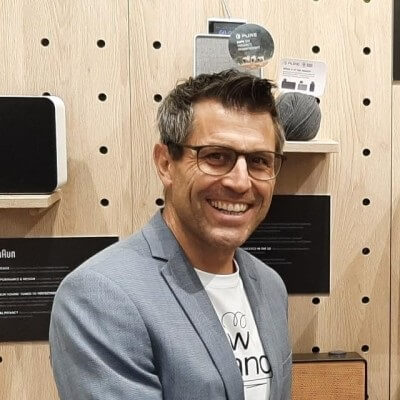The Psychology of Sound 2020 – Listening Habits Uncovered
It’s easy to underestimate the power of radio. For some, it may be considered a relic. That wooden box on a shelf, transmitting an outdated listening format. But radio is so much more than that.
In fact, radio remains one of the most listened to forms of audio around the world – delivering an endless choice of highly-curated music, sport, chat, news and entertainment content. It’s also a constant in our daily routines, providing the soundtrack to our lives – whether at home or on the move.
To commemorate UNESCO’s World Radio Day on Thursday 13th February, we’re following up on last year’s The Psychology of Sound study – taking a deeper look into the powerful emotional connection people have with radio, while also exploring their daily listening habits.
Combating loneliness with radio
The research, which polled 2,000 Brits, reveals the extent of loneliness felt across the nation. Despite living in an increasingly connected world, 1 in 5 of those surveyed say that they don’t feel connected to the people around them. The average Brit feels lonely for two days a week, and 1 in 4 (23%) say they will sometimes go days without speaking to anyone. 1 in 10 also admit that they only speak to other people at work.
But for many, radio is the saving grace. 47% of Brits put on radio to keep them from feeling lonely and 1 in 4 (25%) say they listen to radio stations (DAB and satellite) that they know when feeling lonely – just for the familiarity of the voice they’re listening to.
Data shows the connection people have with DAB+ radio, as it comes third (32%) in the line-up of entertainment consumed when they are feeling lonely – with 1 in 3 saying it acts as a digital companion. More than a third of people also like to put on the radio as background noise, to use as a coping mechanism when feeling lonely.
Dr Becky Spelman, behavioural psychologist, said: “Loneliness affects people in different ways, and there are various ways people try to counter it, including listening to a familiar voice on the radio or TV. From a psychological point of view, having access to new music, discussions around the news or interviews at the touch of a button is an important way of dealing with loneliness.”
A daily companion
When it comes to daily habits, people surveyed say they most often listen to radio driving on the way to/from work (42%). 50% of people listen to radio on the go, during daily activities and whilst doing manual labour. For example, gardening (11%), manual labour (14%) walking or on the train to and from work (15%) and in the shower (11%).
A third also say that they listen to the radio once or twice a day. The most popular time to listen to the radio is 11am.
This research is unveiled as Pure announces the StreamR Splash, the smaller sibling to the recently launched StreamR – creating a range of smart radios with built-in digital radio, Bluetooth and Amazon Alexa functionality.
The study reveals that males are more likely to take a smart radio on travel with them than females (34% males vs 25% females). Likelihood to travel with a smart radio decreases with age, with 25-34s saying they are 60% likely vs 13% for 65+s.
Adrian Bruell, Head of Product at Pure, said: “Radio has played a big part in many people’s lives, and continues to do so today, as these results show us. As a brand, we’ve been redefining radio, offering people more options to listen how they want to. Whether that’s in the shower, outside gardening or out on a walk, radio is there for people when they need it.”
Discovery and favourites
In the age of digital streaming, Brits still feel a strong connection to the radio as they search for the latest music. In fact, the average Brit will discover 8 breakthrough artists a year by listening to their radio.
The research also reveals the nation’s top 10 favourite radio presenters:
- Sara Cox
- Jeremy Vine and Zoe Ball (tying for second!)
- Chris Evans
- Roman Kemp
- Nicky Campbell
- Chris Moyles
- Eamonn Holmes
- Nick Ferrari, Julia Hartley-Brewer and Greg James (all for eighth!)
- Emma Barnett
- Justin Webb
UNESCO’s World Radio Day celebrates the medium as a way of educating people, providing information and even saving lives. To find out more about the event, visit their website.





